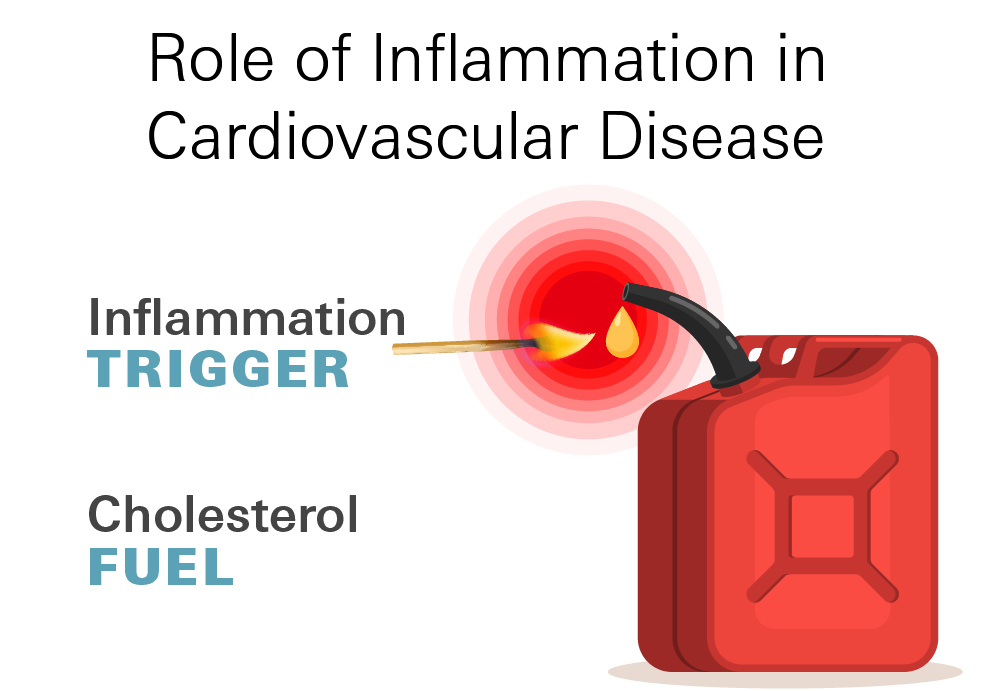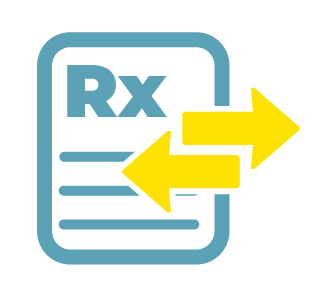Does LODOCO decrease fertility?
There are some reports that colchicine has been associated with decreased fertility in men, though this is rare and likely reversible.
In 2023, LODOCO (low-dose colchicine) became the first approved anti-inflammatory treatment that lowers the risk of cardiac events. It's designed for those who already have heart disease or are at a high risk of suffering a heart attack.
Clinical trials have demonstrated that LODOCO can reduce the risk of heart issues by 31% compared to a placebo. This benefit comes from adding it to your usual heart care routine, which may include high-intensity statins.
Through Marley Drug you can access LODOCO for $99/month, thanks to an agreement with the manufacturer AGEPHA Pharma.
The manufacturer and Marley Drug share the goal of providing broader access to drugs at a low out of pocket cost. Through this agreement we can offer this medication at a much lower price than other brand medications by bypassing wholesalers and insurance middlemen (which contribute to the high cost of medications).
Consider discussing LODOCO with your physician during your next appointment. To facilitate this conversation, download and bring the information sheet to your visit.
Download Info Sheet
Low-dose colchicine (LODOCO) works to reduce inflammation in a unique way that benefits the heart and blood vessels.
Colchicine is a medication that has been used for a long time, mostly to treat gout by reducing inflammation and pain. When it comes to heart disease, inflammation plays a significant role in the development and progression of atherosclerosis, which is the buildup of plaques in the arteries that can lead to heart attacks and strokes.
At low doses, colchicine works by calming the body's response to inflammation. It does this by affecting white blood cells, which play a big role in the development of artery-blocking plaques. By interfering with certain parts inside these cells, LODOCO keeps them from becoming overly active and causing inflammation. It also lowers the levels of certain inflammation-causing substances in the body and affects various cell activities that lead to the buildup of plaques in the arteries.
By damping down the inflammation in this manner, low-dose colchicine helps to reduce the risk of cardiovascular events, such as heart attacks and strokes, particularly in people who have established cardiovascular disease or are at high risk for heart disease. This anti-inflammatory effect, with a focus on the cardiovascular system, is what makes LODOCO an innovative treatment option for reducing the risk of cardiac events.
LODOCO has shown to reduce CRP levels. CRP stands for C-reactive protein and is produced by the liver in response to inflammation, so an elevated CRP level suggests that there is inflammation occurring somewhere in the body. While we know LODOCO can help prevent serious heart problems, the exact way it achieves this protection is still being studied.

Transferring your prescription to Marley Drug is easy. Fill out a simple form, and we will take it from there. All orders are confirmed with a phone call before shipping.
Transfer now
Order LODOCO on our site. During checkout you're given a choice for the prescription delivery. You can ask your physician to send the prescription to Marley Drug, or we can contact them on your behalf. Either way we do our best to make the process easy for you.
Order LODOCOCall us for a free pharmacy consult.
800-810-7790
Does LODOCO decrease fertility?
There are some reports that colchicine has been associated with decreased fertility in men, though this is rare and likely reversible.
Can I take LODOCO if I am pregnant or breastfeeding?
There is limited data on the use of LODOCO during pregnancy and breastfeeding, and therefore the possible benefits of taking this medication should be weighed against the possible risks and should be discussed with a healthcare provider.
What strengths of LODOCO are available?
There is only one strength of LODOCO: 0.5 mg tablets.
Can I eat grapefruit while taking LODOCO?
No, you should not consume grapefruit products while taking LODOCO, as grapefruit will increase your exposure to this medication.
Can LODOCO interact with other medications or substances?
LODOCO has the potential to interact with a number of medications. It is very important to speak with your healthcare provider about all medications and natural health products you may be taking before you begin treatment with LODOCO.
How should LODOCO be taken?
LODOCO tablets should be taken by mouth, one time per day.
Can LODOCO be used in children and adolescents
The effectiveness and safety of LODOCO in children and adolescents has not been established, and therefore it is generally not recommended to use this medication in this population.
How does LODOCO work in the body?
LODOCO is an anti-inflammatory medication and is thought to work for cardiovascular disease by decreasing inflammation in the blood vessels and improving cardiovascular outcomes.
What is LODOCO used for?
LODOCO is used to help lower the risk of heart attack, stroke, coronary revascularization, and cardiovascular death in adult patients with established atherosclerotic disease (ASCVD) or with multiple risk factors for cardiovascular disease.
What should I do if I miss a dose of LODOCO?
If a dose of LODOCO is missed, the missed dose should be taken as you remember, unless its very close to your next scheduled dose. If the missed dose is skipped do not take a double dose.
What are the warnings and precautions of taking LODOCOo?
LODOCO can cause myelosuppression, leukopenia, granulocytopenia, thrombocytopenia, pancytopenia, and aplastic anemia, which can be life-threatening or fatal.
Gastrointestinal symptoms are often the first sign of colchicine toxicity, so new symptoms should prompt an evaluation for toxicity. Talk with your healthcare provider right away if you experience any changes.
Use of certain medications can reduce the metabolism of LODOCO which can increase the risk of developing blood dyscrasias.
You should be monitored closely when taking colchicine if you have any degree of renal impairment and hepatic impairment for colchicine toxicity.
Remember to tell your healthcare provider about any and all medications and over-the-counter products you are taking and about all of your health conditions.
Who should not take LODOCO?
You should not take LODOCO if:
Be sure to tell your healthcare provider about all medications you are taking and if you have any health conditions.
What are the serious side effects of LODOCO?
LODOCO can cause certain serious side effects which include:
What are the common side effects of LODOCO?
Common side effects of LODOCO include:
Fatal overdoses have been reported with colchicine in adults and children. Keep LODOCO out of the reach of children.
For females and males of reproductive potential there is a rare risk that LODOCO may transiently impair fertility.
Data informed by:
1 Nidorf SM, Fiolet ATL, Mosterd A, et al. Colchicine in Patients with Chronic Coronary Disease. N Engl J Med. 2020;383(19):1838-1847. doi:10.1056/NEJMoa2021372